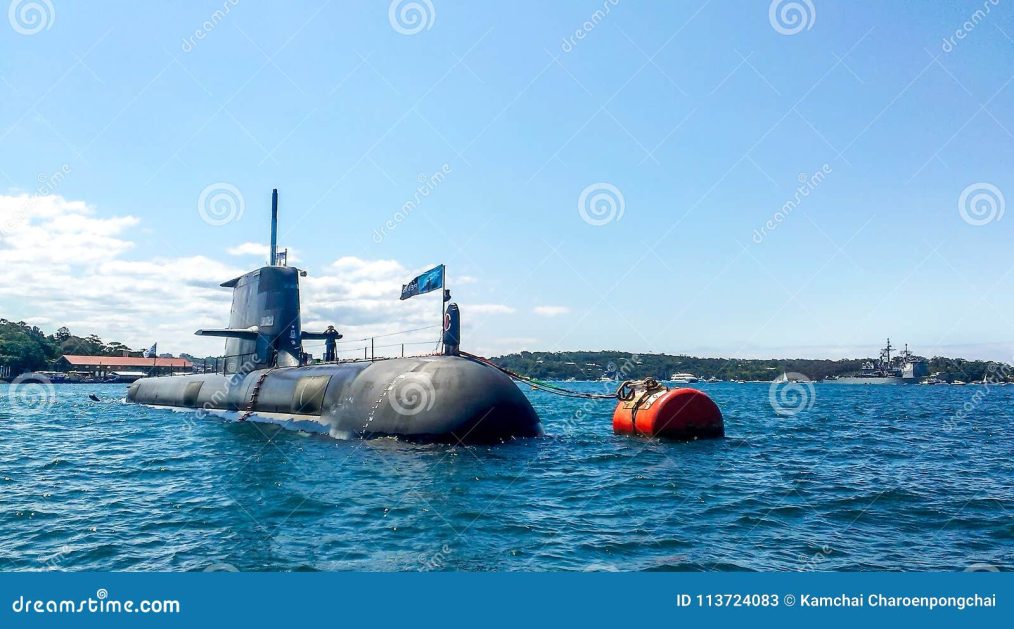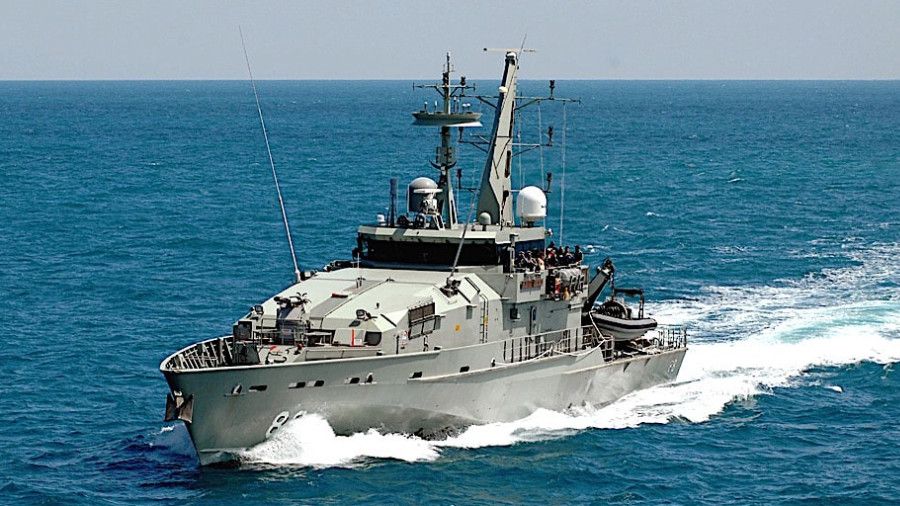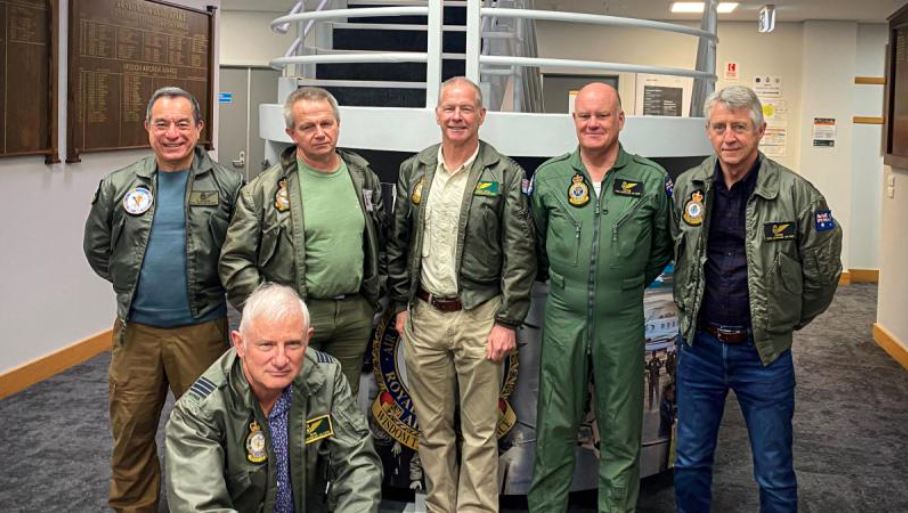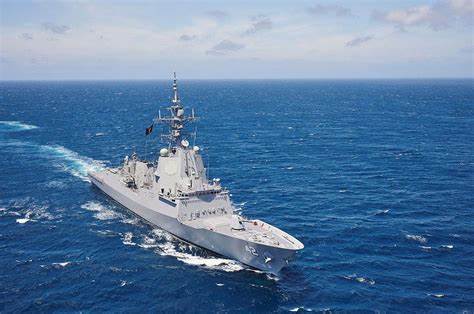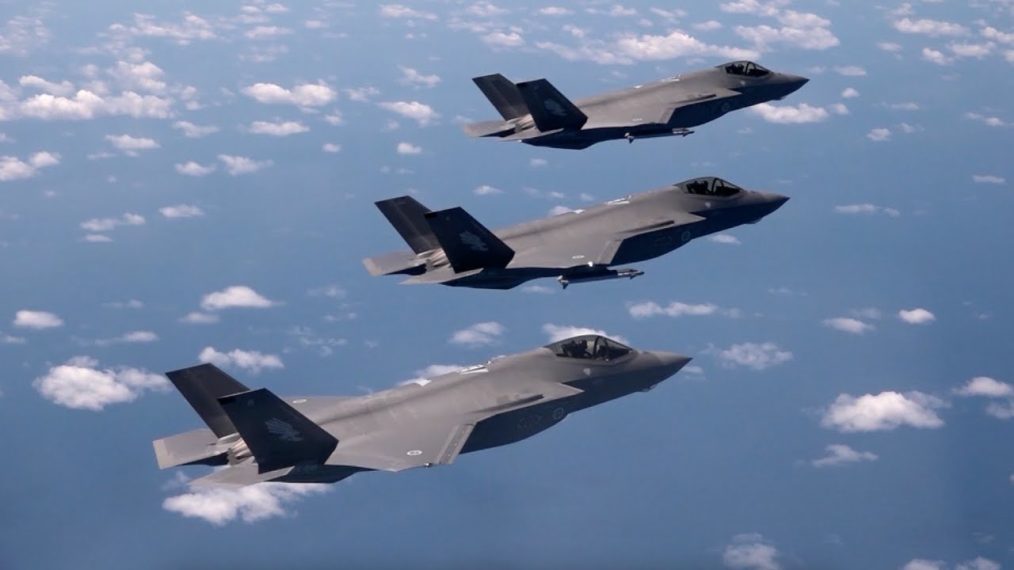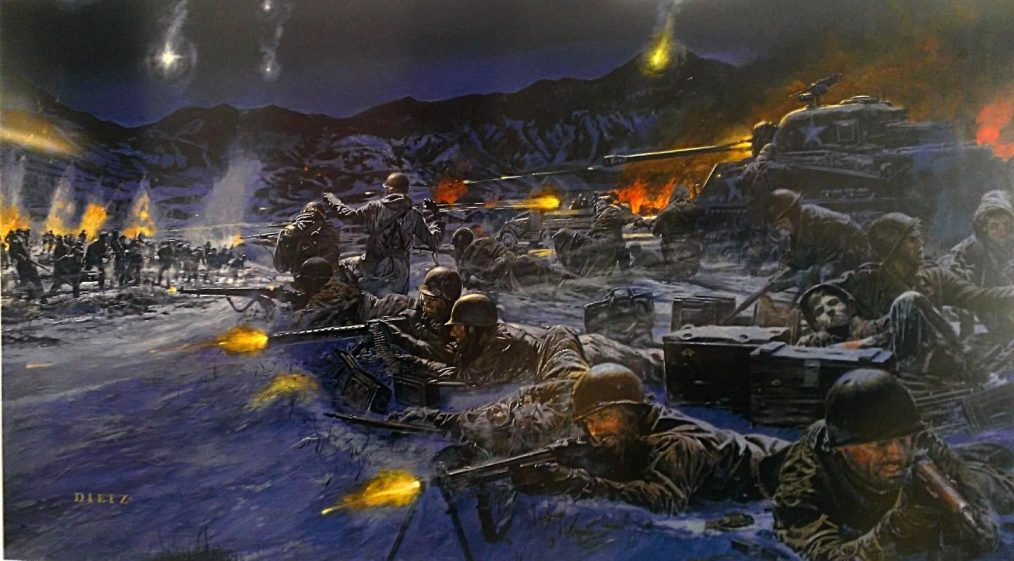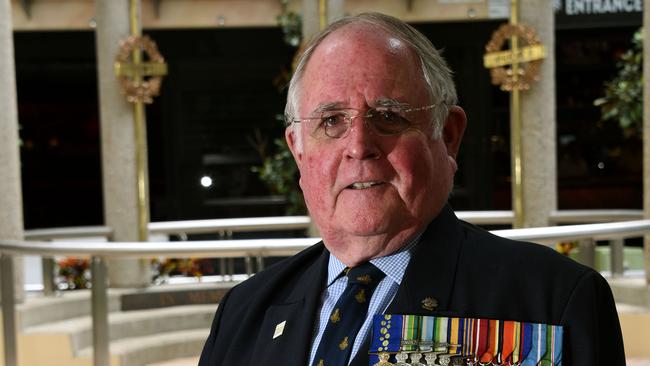We take a look beneath the surface of Collins Class submarine, HMAS Dechaineux, and find out what life is like for the crew onboard.
The Hawker Hurricane was a British single-seat fighter aircraft manufactured by Hawker Aircraft, Ltd., in the 1930s and ’40s. The Hurricane was numerically the most important British fighter during the critical early stages of World War II, sharing victory laurels with the Supermarine Spitfire in the Battle of Britain (1940–41) and the defence of Malta (1941–42). Hurricanes served in all theatres of war where British forces were engaged.
The Royal Australian Navy (RAN) has received an autonomous surface vessel (ASV), PBAT Sentinel, as part of a project to enhance its autonomous systems. PBAT Sentinel, formerly the Armidale-class patrol boat ex-HMAS Maitland, was retired in 2022 and converted under the Patrol Boat Autonomy Trial (PBAT) program.
Austal Australia, responsible for both the vessel’s original construction and its conversion, collaborated on PBAT. The program aims to integrate robotic, automated, and autonomous systems into a patrol boat, serving as a proof-of-concept for optionally crewed or fully autonomous operations. The trial will also address legal and regulatory requirements for operating autonomous vessels at sea.
PBAT seeks to:
- Advance remote operations and autonomous certification.
- Improve fuel management, communication, and navigation systems.
- Ensure reliable operation of shipboard mechanical systems without crew.
- Provide risk reduction insights for future naval projects.
- Apply lessons to optimize crew workload in the current fleet.
Sentinel’s conversion at Austal’s Henderson shipyard included installing monitoring and control systems for autonomous operations, along with modifications to the bilges, CCTV, and electrical systems. Greenroom Robotics added sensors and computer units for the autonomous control system.
Registered under the Australian Maritime Safety Authority (AMSA), Sentinel completed sea acceptance trials (SATs) off Western Australia in March and April. It successfully performed remote and autonomous navigation, collision avoidance, and other operational tests. Following the SATs, the vessel underwent endurance trials to test its capabilities over several days.
PBAT involves the Trusted Autonomous Systems Defence Cooperative Research Centre, Greenroom Robotics, and the RAN’s Warfare Innovation Navy (WIN) Branch, with co-funding from the Australian Government.
The Coalition is committed to advancing nuclear power generation and will implement two parallel workstreams at each designated site during its first term of government. This approach underscores our strong support for nuclear energy as a vital component of a sustainable and reliable energy future.
Comprehensive Site Study
The first workstream involves an in-depth site study, which will include rigorous technical and economic assessments. This study will cover various aspects such as geological suitability, environmental impact, infrastructure requirements, and long-term economic viability. These assessments are crucial for ensuring that each site can safely and effectively support a nuclear power facility.
- Technical Evaluation: Experts will analyse the geological stability, seismic activity, and proximity to water sources required for cooling reactors. The environmental impact on local ecosystems and biodiversity will also be assessed.
- Economic Assessment: Detailed economic analysis will include cost estimates for construction, operation, and maintenance of the nuclear facility. The potential for job creation and local economic growth will also be considered.
If the study finds a location unsuitable on technical grounds, it will be promptly removed from consideration. This ensures that only the most viable sites move forward in the process. It is important to note that no new locations will be added to the list, maintaining a focused and efficient approach.
Community Engagement and Partnership
The second workstream emphasizes robust community engagement, recognizing the importance of local support and involvement in the success of nuclear power projects.
- Expert Consultations: A structured process will be established to allow communities to engage directly with experts. This will provide a platform for residents to ask questions, express concerns, and receive accurate information about nuclear power and the specific project details.
- Community Partnership: A Community Partnership will be formed at each location, consisting of experienced local representatives. This partnership will play a pivotal role in negotiating a benefits package tailored to the community’s needs.
The benefits package aims to ensure that hosting a nuclear power facility brings tangible economic advantages to the region. This may include investments in local infrastructure, educational programs, health services, and other community development initiatives. By securing the region’s economic future, the Coalition ensures that the local population directly benefits from the presence of a nuclear facility.
Commitment to Nuclear Power
The Coalition’s dual workstream approach reflects a balanced and responsible strategy for advancing nuclear power generation. By combining thorough technical assessments with proactive community engagement, we aim to ensure that nuclear power facilities are safe, economically beneficial, and supported by local communities. This initiative is a crucial step toward a sustainable energy future, reducing carbon emissions, and enhancing energy security for our nation.
Courtesy Department of Defence
Last month, a group who once relied on the celestial dance of stars and planets to chart their course met a generation trained with GPS.
Forty years to the day after graduating from No. 64 navigator course, a close-knit group of friends reunited to visit what was then called the RAAF School of Air Navigation.
Despite one member having passed away, six surviving graduates toured simulators and observed the latest software at RAAF Base East Sale’s Air Mission Training School.
The group, who have shared a lifetime of career changes and health challenges, donned their old flying jackets and suits for the reunion.
Mission aircrew students guided the class of ’84, which included retired Wing Commander Gavin Small, through take-off checks on the ground missions trainer simulator, showcasing technology vastly different from the ’80s.
Back then, manual navigation over water relied on whatever positional data was available – often celestial cues and solar observations.
Sextants and mathematical equations helped calculate heading and airspeed, always mindful of the wind’s potential to alter its course.
Despite the ‘navigator’ title no longer existing, many aspects of the role remain the same.
‘The work during our course was vastly different from what students do now, but someone still occupies the seat I once did, they just have extra duties and a bit more comfort with modern equipment,’ Mr Small said.
The group marvelled at how today’s compact A4-size charts starkly contrasted with the sprawling maps of the past, which once required an origami lesson to fold.
The old and new generations shared lunch and listened to yarns from “back in the day”.
The veterans’ strong bond left an impression on the students, offering them a glimpse of what their futures might hold.
The group emphasised to the students that their classmates could potentially become lifelong friends, not just temporary acquaintances.
‘We wanted to show them that we old blokes are still great friends, as it certainly never crossed our minds during the course that we would forge such a lasting bond,’ Mr Small said.
Reflecting on the camaraderie he observed, Pilot Officer Zachary Smith found it inspiring and was proud to be part of the reunion.
‘Hearing their war stories and learning what they got up to on trips away was fascinating,’ he said.
‘I could see their personalities in their mateship – the funny guys, the thoughtful guys. I could picture them all 40 years ago on course together.
Most of the original course, including those who did not graduate, continue to have regular catch-ups and maintain a Facebook group.
‘RAAF Base East Sale holds significance for us and provides another opportunity to reconnect and reminisce about old memories,’ Mr Small said.
The group previously celebrated their 30th reunion, with plans already underway for a 45th reunion.
‘We don’t want to wait too long between gatherings; after all, we’re not getting any younger,’ Mr Small said.
Below: Air Force aviators reunite 40 years after graduation. Rear, from left: Squadron Leader Michael Spencer, Squadron Leader (retd) Geoffrey Menzies, Wing Commander (retd) Gavin Small, Flight Lieutenant (retd) Russell Lucas, Group Captain (retd) John Heinrich and (front) Wing Commander Michael Hicks.
The Hobart Class guided-missile destroyer, HMAS Sydney, along with its MH-60R Seahawk helicopter and a crew of about 200, was farewelled at Fleet Base East for a four-month regional presence deployment.
During this period, HMAS Sydney will participate in Exercise RIMPAC, the world’s largest international maritime exercise, Exercise Pacific Dragon, and Operation Argos, which supports UN sanctions against North Korea. The ship will also engage in activities with regional partners to enhance cooperation and interoperability.
Exercise RIMPAC 24 will involve 40 surface ships, 4 submarines, 14 national land forces, over 170 aircraft, and approximately 25,000 personnel from 30 nations, providing a significant training opportunity and strengthening regional security relationships.
Commodore Jonathan Ley emphasized that these deployments reflect Australia’s commitment to regional engagement and maintaining a near-continuous presence in the Indo-Pacific. He extended his best wishes to Commander Grant Coleman and his crew.
Commander Coleman expressed the crew’s eagerness to represent Australia in Exercise RIMPAC and throughout the deployment.
Exercise Pitch Black 2024, the Royal Australian Air Force’s premier biennial flying activity, will run from July 12 to August 2. This year’s event will be the largest in its history, featuring 20 nations and a multinational element.
For the first time, aircraft from Italy, Papua New Guinea, the Philippines, and Spain will participate, along with personnel from Brunei and Fiji. The exercise will take place at RAAF Bases Darwin, Tindal, and Amberley, focusing on large-force employment missions over the Northern Territory.
Air Commodore Peter Robinson, leading the exercise, highlighted its unprecedented scale with about 140 aircraft and over 4,400 personnel involved. He emphasized the opportunity for enhanced international cooperation and the sharing of experiences to promote regional peace and stability.
New infrastructure, including the Defence Accommodation Precinct Darwin at Howard Springs, will support the exercise. RAAF Base Amberley will play a larger role than in previous years, hosting more tankers and transport aircraft.
The exercise will involve complex planning and coordination, with aircraft flying over extensive areas of the Australian outback in controlled airspace, tackling dynamic threats both day and night.
The benefits of Exercise Pitch Black will extend beyond the three-week duration, contributing to regional stability and enhancing Australia’s role as a security partner, in line with the 2024 National Defence Strategy. The event will also feature a Mindil Beach flying display and an open day at RAAF Base Darwin.
The Battle of Kapyong has come to be known as the most significant and important battle for Australian troops in the Korean War. Watch as The Cove walks us through the history of the Battle of Kapyong.
 CHARLES McMoran Wilson, Baron Moran, was Winston Churchill’s physician, confidant and companion during the critical years of his statesmanship.
CHARLES McMoran Wilson, Baron Moran, was Winston Churchill’s physician, confidant and companion during the critical years of his statesmanship.
Like Churchill a World War I veteran, Moran wrote extensively, including the seminal Anatomy of Courage on soldiers in combat and its effects on their health and wellbeing.
He controversially diarised Churchill’s multiple physical and mental struggles until the latter’s 1965 death, including his cognitive decline during his final years.
Moran did not describe Churchill’s alcohol consumption as excessive contrary to perceptions of many of his political critics, including supposed allies.
While in South Africa Banjo Paterson was astonished to observe Churchill and his cousin consuming a large bottle of beer with breakfast, not an uncommon practice in contemporary shearing sheds which Paterson regularly observed.
CLICK LINK to continue reading
Get ready to witness Australia’s military prowess like never before as we delve into the heart of the AS21 Redback Infantry Fighting Vehicle: the newly announced armoured innovation set to revamp the Australian Army! Join us as we explore the Redback’s deadly capabilities and its pivotal role in shaping the future of defence tactics. From its cutting-edge weaponry to advanced protective systems, discover how this formidable machine is poised to dominate the battlefield. Don’t miss out on this exclusive insider’s look into the Redback IFV phenomenon! Subscribe now for more thrilling updates on the latest in military technology!

